Campaigners call for target to cut Scots alcohol consumption by 10%
- Published
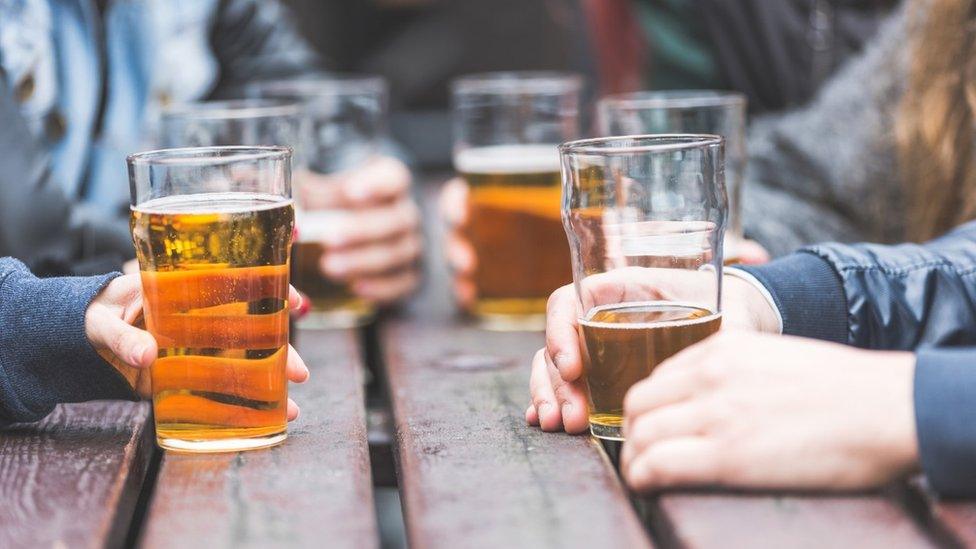
The group who published the report want to see alcohol consumption reduced
Health campaigners have called on the Scottish government to take bold steps to tackle Scotland's alcohol problem.
A report by bodies, including Alcohol Focus Scotland and the BMA, examined the "devastating effect" alcohol has on drinkers, families and communities.
It urged ministers to set a new target to cut the amount of alcohol Scots drink by at least 10% over a decade.
Health Secretary Shona Robison welcomed the report and said the government would consider the recommendations.
Campaigners said the number of Scots dying from alcohol-related illness has doubled since the 1980s.
Their report warned that one million people in Scotland drink more than the recommended amount, with 22 per week dying as a result of their consumption.
The document has been described by those behind it as a "blueprint" for the Scottish government which will "improve the lives of millions of Scots, make our communities better and safer places to live, and reduce demand on our over-burdened public services".
It made more than 40 suggestions, including the "overarching recommendation" that the Scottish government should adopt a national target to reduce alcohol consumption by "at least 10% over the next 10 years".
The report said: "Such a target would provide a clear goal for all of those with an interest in preventing and reducing alcohol consumption and harm in Scotland, at both national and local levels, helping to ensure that efforts are focused and co-ordinated on delivering real impact."
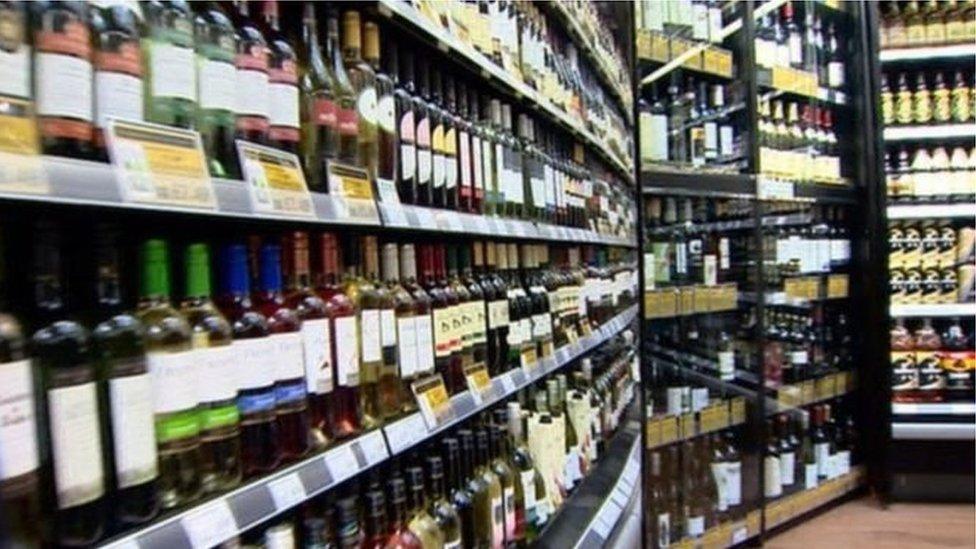
The report called for minimum pricing "as soon as legally possible"
Reducing drinking by this level could "potentially deliver a 20% reduction in deaths and hospital admissions after 20 years", it added.
The report, which was also backed by Scottish Families Affected by Alcohol & Drugs, and Scottish Health Action on Alcohol Problems (SHAAP), called for a 50p minimum unit price for alcohol to be implemented "as soon as legally possible".
Holyrood has passed legislation to bring in minimum pricing but a legal challenge to the policy has so far prevented ministers from implementing it, with the case now set to call at the UK Supreme Court.
Other recommendations included:
a ban on all alcohol price discounting
the development of a new approach to reducing availability of alcohol
restrictions on off-sales licensing hours.
On pricing, the report urged the Scottish government to press UK ministers to create a new tax band for strong ciders and similar drinks "significantly increasing the rate at which these drinks are taxed to reflect their alcohol content".
The government's ambition to impose minimum pricing was part of a wide-ranging strategy to cut alcohol abuse, which was launched in 2009, external.
Alison Douglas, the chief executive of Alcohol Focus Scotland, told BBC Radio Scotland's Good Morning Scotland programme that the plan was "very welcome".
But she added: "We are now eight years on and the reality is that we are not seeing the reduction in harm that we need to.
"So we are really calling on government to redouble its efforts and to show the leadership that it has shown before in trying to progress on this issue."
She said she wanted to see a reduction in the number of outlets that sold alcohol, following a "proliferation" in recent years.
"We now have 16 times as many places where you can buy alcohol as we have GP surgeries," she said.
"It shouldn't be the case that every corner shop is licensed," she added.
Recognising alcohol impact
And she called for more nutritional information on bottles of alcohol. "Consumers have the right to know what they're drinking and what it contains.
"At the moment there's less information on a bottle of beer or a bottle of wine than there is on a pint of milk."
Speaking on the same programme, Health Secretary Shona Robsion denied the government's alcohol strategy was a failure.
She listed a series of measures, including a lower drink-drive limit and a multi-buy discount ban, which she said had led to a 2.6% reduction in alcohol consumption.
"I would say that those measures taken together have had a major impact but I would be the first to acknowledge there's more to be done," she said.
Ms Robison added: "This is a really difficult problem... and I think we are beginning to see the recognition that the impact of alcohol on families and communities being recognised far more than it was 10 years ago.
"We have put alcohol up there as a major public health issue and we have backed that up with investment - over £630m to tackle problem alcohol and drug use since 2008 - that is a major investment.
"But there is more to be done and I certainly welcome the input of Alcohol Focus Scotland, the BMA and others in pushing us to go further."
She added that the government was "refreshing" its alcohol framework, which was due to be published in the summer. She said they would consider all of the recommendations of the new report.
- Published28 February 2017
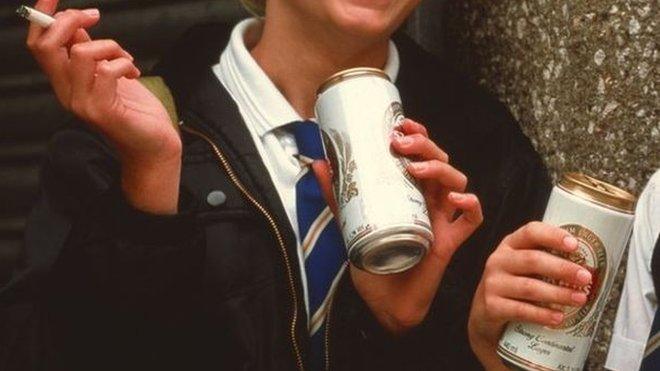
- Published18 November 2016
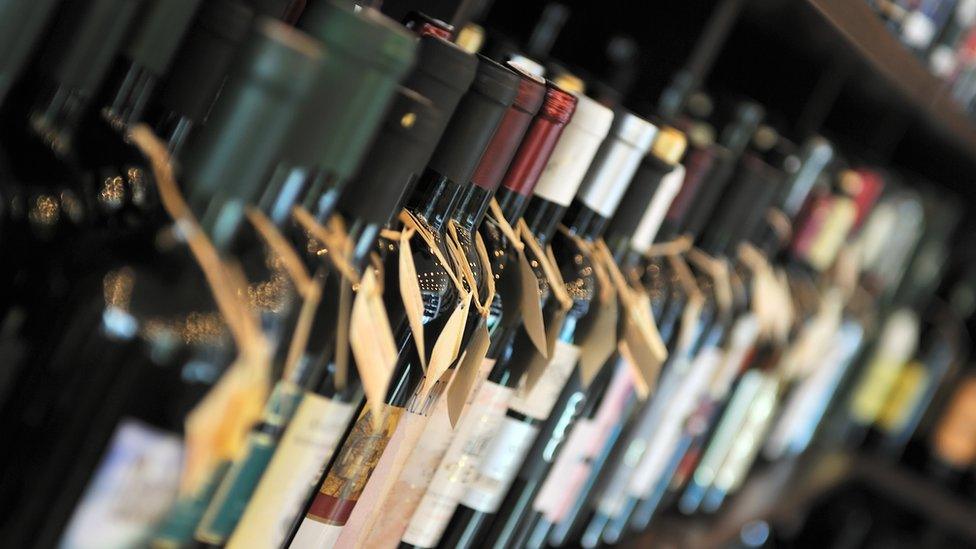
- Published14 November 2016
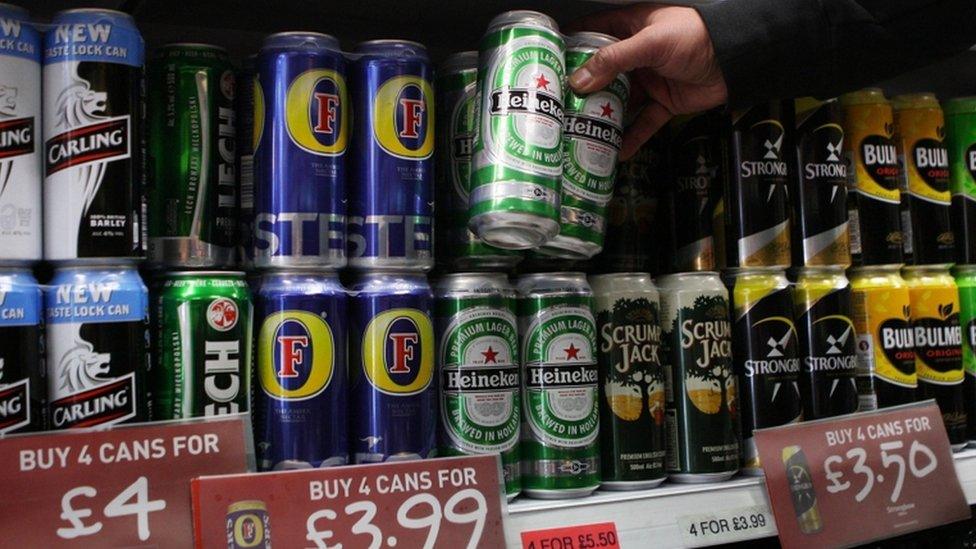
- Published21 October 2016
